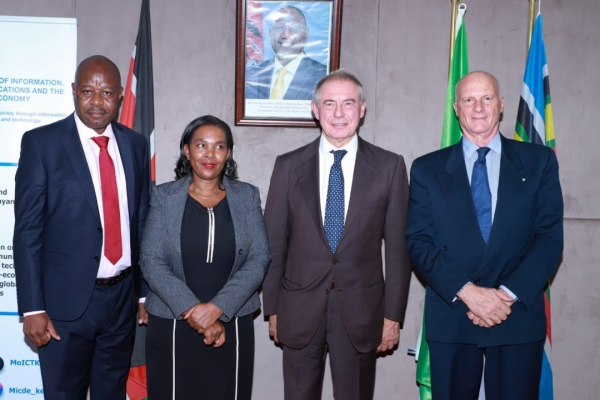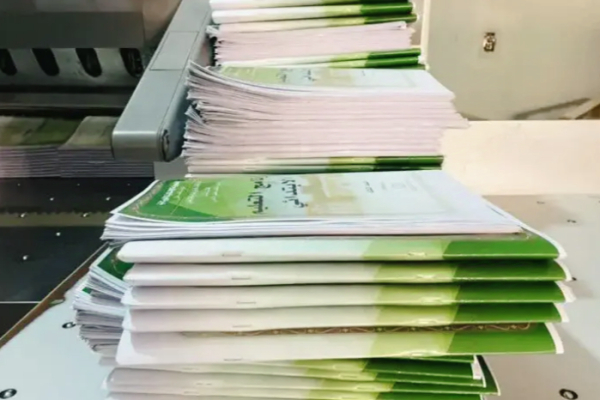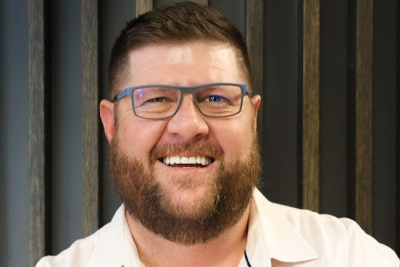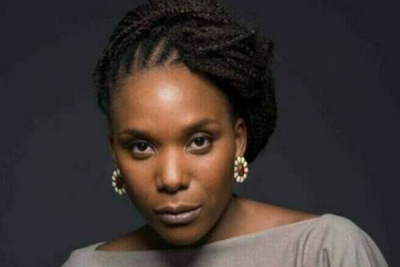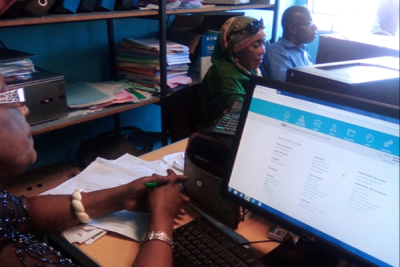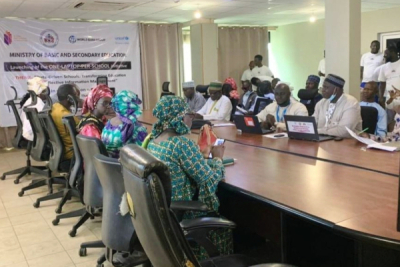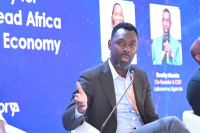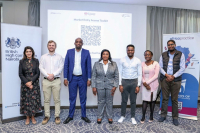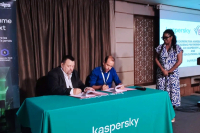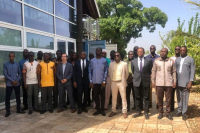Enhancing digital transformation is essential for accelerating Africa’s digital economy, which is vital for driving innovation and entrepreneurship. With rapid growth already underway, the digital economy stands to benefit significantly from improved connectivity and the establishment of digital hubs, facilitating business expansion and attracting further investment.
Kenya's Cabinet Secretary for the Ministry of Information, Communications, and Digital Economy, Dr. Margaret Ndung'u, met with Italian officials led by Minister of Enterprises and Made in Italy Adolfo Urso in Nairobi on September 30. The meeting discussed Kenya’s collaboration with Italy to boost its digital transformation efforts.
“Kenya is a strategic partner for the development of artificial intelligence in Africa. It is the country that has responded the most to the pilot accelerator program for African startups,” said Minister Urso.
Kenya aims to leverage Italy’s expertise in space and emerging technologies through a partnership focused on enhancing public service delivery, deploying innovative fibre-optic solutions, promoting information exchange, and advancing the production of digital devices and chips. Additionally, the collaboration will explore areas of cooperation in artificial intelligence (AI), particularly under the Mattei Plan. This includes the “AI Hub for Sustainable Development” project, spearheaded by the Italian G7 Industry, Technology, and Digital Ministerial Chairmanship, in collaboration with the UNDP.
The partnership will support Kenya’s Digital Superhighway project, which aims to lay 100,000 km of fibre and establish digital hubs across 1,450 wards. Areas of focus include space tech, AI, and manufacturing digital devices to drive socio-economic development.
This move will support Kenya's digital advancement as it directly supports the country’s growing tech ecosystem. It aligns with Kenya’s World Bank-backed Digital Economy Acceleration Project, which is expected to modernize digital infrastructure and services, in line with the government’s goal of boosting innovation, job creation, and economic diversification.
Hikmatu Bilali
The Mauritanian government is currently developing a roadmap to reform the education system, with digital technology playing a central role. The goal is to modernize teaching methods and integrate technological tools into schools, among other initiatives.
Mauritanian students will soon have access to digital textbooks, thanks to a new initiative by the National Pedagogical Institute (IPN). The reform will begin with the upcoming school year on October 7. The textbooks will be available for download through the "Koutoubi" (My Books) app, providing students with easier access to modern educational resources. According to IPN director Cheikh Ould Sidi Abdallah, the Koutoubi app complements the traditional distribution of paper textbooks, offering students and parents the option to acquire digital copies.
The initiative is part of a new National Textbook Strategy currently under development, which emphasizes the importance of digital technology. Its announcement comes amid broader efforts to enhance digitalization in schools. The Mauritanian government recently signed an agreement with the FIFA Foundation to train 10,000 schoolchildren, aged 6 to 12, in coding, robotics, and digital literacy over the next three years.
The introduction of digital textbooks is also expected to lighten the heavy school bags that are a common concern among parents. However, the success of this reform depends on schools' ability to provide the necessary equipment, such as tablets and computers, to ensure students can access these digital resources. The lack of such tools could hinder the full implementation of this ambitious project.
Despite these challenges, the transition to digital learning reflects a clear commitment to preparing Mauritania's younger generations for future technological challenges while improving access to modern educational materials.
Samira Njoya
As Africa's digital economy expands, with industries like fintech, e-commerce, and agritech growing rapidly, cyberattacks pose a significant threat. A secure digital environment is essential for sustaining investor confidence, driving innovation, and enabling businesses to thrive.
SEACOM announced on October 1 a new partnership with US-based cybersecurity firm Arctic Wolf to enhance its cybersecurity services across Africa, addressing the growing threat landscape on the continent. With cyber-attacks increasingly targeting businesses of all sizes, this collaboration aims to provide SEACOM’s clients with advanced security operations solutions through Arctic Wolf’s cloud-native platform and expert security teams.
The partnership enables SEACOM clients to benefit from proactive and tailored protection against current and emerging threats. SEACOM emphasizes that Arctic Wolf’s platform will offer comprehensive visibility into customers' attack surfaces, allowing businesses to monitor their entire security environment from one central interface. This approach ensures rapid identification and response to malicious activities or vulnerabilities.
SEACOM’s portfolio will now include Arctic Wolf's suite of security solutions, such as Managed Detection and Response, Incident Response, and Cloud Security Posture Management.
Cybercrime is a growing threat in Africa, with ransomware attacks becoming more frequent. According to the ‘INTERPOL African Cyberthreat Assessment Report 2024,’ in early 2023, 1 in 15 African organizations experienced weekly ransomware attempts, much higher than the global average of 1 in 31. It adds that Kaspersky recorded over 300 attempts in South Africa in just one week. The financial impact of cybercrime in Africa is immense, with INTERPOL’s 2021 report estimating it at over $4 billion, or 10% of the region’s GDP. Additionally, cyberattacks on African organizations increased by 23% in 2023, marking the highest rate globally.
The growing threat particularly affects businesses and organizations lacking the resources to effectively monitor and respond to security incidents. This move highlights the need for advanced security strategies to safeguard operations in an increasingly digital world.
Hikmatu Bilali
She is determined to transform access to technology for artisans in Africa. Through her startup, she aims to simplify life for entrepreneurs in the informal sector.
Bams Betga (photo) is a Cameroonian artist and entrepreneur, co-founder, and CEO of African Puzzle Works, a company that specializes in creating software for artisans. Founded in 2021 by Betga and Renée Clément, African Puzzle Works is committed to innovation aimed at supporting entrepreneurs in the informal economy.
The company developed African Puzzle, a personal assistant designed specifically for entrepreneurs and project leaders. This mobile application, which utilizes audio and photo-based features, allows users to easily manage orders, client information, appointments, product catalogs, and track finances—without requiring literacy skills. "With our voice and image-based features, we remove the barriers to adopting technology for entrepreneurs with limited literacy. Everyone knows how to send a voice note or take a photo," explained Betga in 2024.
A former athlete, Bams Betga is also a singer-songwriter with four albums to her name. As the international partner of the World Business Angels Investment Forum in Cameroon, she is dedicated to improving access to financing for businesses. Additionally, she serves as the national representative for Cameroon’s startup ecosystem in the G100: Mission Million, a group of 100 women leaders worldwide.
In 2022, African Puzzle Works won first prize at the Blue Ocean Awards, which recognizes entrepreneurial innovation. More recently, in April 2024, Betga was nominated for Best Africa Solutions at the second edition of the Africa Solutions Week (SAS), held in France in September and scheduled to take place in Morocco from October 17 to 19, 2024.
Melchior Koba
The Comoros' digitalization project is expected to cost €22.53 million (approximately $25 million). The African Development Fund, the concessional lending arm of the African Development Bank (AfDB), has granted €4.02 million, while the Transition Support Facility has released €5.49 million.
The Board of Directors of the African Development Bank Group (AfDB) approved a €9.51 million ($10.5 million) funding package for the Comoros on Monday, September 30. These funds will support the implementation of the Comoros Economic Digitalization Support Project.
“The objective of the project is to promote the emergence of a comprehensive and coherent range of digital services that can meet the needs of the population, with the ultimate goal of aligning the country with the information society,” the institution said in a statement.
This initiative comes as digital transformation accelerates across the continent. According to the Measuring Digital Development – ICT Development Index 2024 report, published in July 2024 by the International Telecommunication Union (ITU), the Comoros ranks 25th in Africa with a score of 46.5 out of 100 on the ICT Development Index, below the African average of 50.3.
In terms of the E-Government Development Index (EGDI), the Comoros score significantly trails the African average of 0.4247, according to the E-Government Survey 2024: Accelerating Digital Transformation for Sustainable Development, published in September 2024 by the United Nations Department of Economic and Social Affairs (UN DESA). The country ranks 45th, with a score of 0.2586 out of 1.
The implementation of this project is expected to help the archipelago develop digital infrastructure, create a favorable regulatory and legal framework, enhance digital education and training, and promote technological innovation and entrepreneurship.
Adoni Conrad Quenum
In The Gambia, the government is stepping up efforts to accelerate digital transformation. This affects all sectors of the economy, including education.
Last week, the Gambian government launched an initiative to provide laptops to the principals of all schools across the country. This effort, in partnership with the Global Partnership for Education (GPE), UNICEF, and the World Bank Group, is expected to drive the digitalization of school administration.
“The initiative marks a significant step in our efforts to enhance quality education and empower school managers with the tools needed for efficient service delivery in the digital age,” said Pierre Gomez, Minister of Higher Education, Research, Science, and Technology.
The Gambian government aims to digitize the national education system as part of its broader ambitions for digital transformation. According to Minister Gomez, the government is working to develop digitized information systems, enhance the digitalization of public services, and expand the use of electronic record management systems across all public administrations.
In September 2023, the government launched the Gambia Research and Education Network (GAMREN), in partnership with the World Bank, to provide high-speed internet connectivity to schools and research institutions nationwide. As early as July 2022, the Ministry of Higher Education, Research, Science, and Technology had begun efforts to develop a national strategy for digitizing technical and vocational education and training, with support from UNESCO.
UNESCO believes technology can significantly enhance educational management. "It enables a wider range of data collection on schools and students, allowing for precise analysis of learning paths and influencing factors. This data can be used to personalize learning, identify marginalized children, and prevent disengagement and early dropout," the organization stated in its 2023 Global Education Monitoring Report.
Isaac K. Kassouwi
Passionate about solving global challenges, he develops technological solutions with a strong focus on underserved populations in developing countries.
Timothy Musoke (photo) is a Ugandan computer engineer and entrepreneur. He is the co-founder and CEO of Laboremus Uganda, a startup that promotes financial inclusion in Africa.
Founded in 2013, Laboremus Uganda provides infrastructure to financial institutions, helping banks and fintech companies accelerate financial inclusion in sub-Saharan Africa by improving access to credit for everyone. The company offers financial service providers data and tools to process loans more quickly and at a lower cost by digitizing the loan process either partially or fully.
"We started Laboremus to build complex and user-friendly software for Ugandans, in Uganda," says Timothy Musoke. "McKinsey ranks Africa amongst the fastest growing and most profitable banking markets globally. We are working on digitising this market to make credit accessible to everyone," he adds.
Musoke is also the co-founder and advisor at Emeta, a licensed microfinance institution founded in 2017, which is transforming access to financing for smallholder farmers in Africa. Emeta provides loans that enable farmers to invest in their farms and increase their incomes.
Timothy Musoke holds a bachelor's degree in software engineering from Franklin University in the United States. From 2016 to 2020, he served on the board of Fontes Foundation, a Norwegian NGO providing community development services to disadvantaged populations.
Melchior Koba
Africa's fragmented regulatory landscape often poses significant challenges for entrepreneurs, who face different requirements in each country. Leveraging digital tools to lower entry barriers and provide a structured pathway for market expansion can boost economic transformation in Africa.
The UK, in collaboration with PwC, has introduced a digital toolkit through the UK-Kenya Tech Hub to aid entrepreneurs in accessing the Kenyan, Nigerian, and South African markets. The toolkit, launched on September 26, aims to streamline market entry and enhance opportunities for startups across various sectors, including agriculture, education, financial services, health, and manufacturing.
Jordan Kyongo, Head of the East Africa Research and Innovation Hub at the British High Commission in Nairobi, highlighted the importance of this initiative. "This toolkit will be an instrument in growing Africa’s entrepreneurial ecosystem by consolidating the requirements for market entry, ultimately easing the process for entrepreneurs," Kyongo stated.
The toolkit was developed to address the regulatory, certification, and tariff barriers that entrepreneurs often face when expanding into new markets. It includes practical tools, guides, and outputs designed to simplify the market entry process in the three targeted countries. Feedback from multiple validation sessions has helped refine the toolkit, making it a user-friendly resource for entrepreneurs navigating complex regulatory landscapes.
According to an article by AU Startups on ‘How African Tech Startups Can Navigate Regulatory Challenges,’ African startups face constant hurdles, including creating scalable solutions in unpredictable markets and securing funding in volatile economies. Additionally, complex and restrictive regulations in both their home markets and potential expansion areas further complicate operations, making compliance a crucial factor that can determine their success or failure. The toolkit aims to reduce the administrative burden by providing clear, consolidated information for market entry in Kenya, Nigeria, and South Africa. It also serves as a foundation for expanding similar initiatives into other African markets.
This digital toolkit could be a game-changer for African entrepreneurs, offering a model for overcoming market access challenges and promoting sustainable business growth.
Hikmatu Bilali
The acceleration of digital transformation in Africa has created a growing demand for cybersecurity professionals. According to the World Economic Forum, the global talent shortage in this field could reach 85 million workers by 2030.
Last week, Russian cybersecurity provider Kaspersky partnered with EPI Sup de Sousse, a private Tunisian university, to train a new generation of cybersecurity experts, foster innovation, and strengthen Tunisia's cybersecurity ecosystem.
This partnership comes at a time when Tunisia is facing a high number of cyber incidents. In 2023, TunCERT, the country's national computer emergency response team, recorded nearly 150,000 incidents affecting the national cyberspace. Of these, 46% were phishing attacks, while 17% involved malware.
According to the International Telecommunication Union (ITU), Tunisia scored 82 out of 100 in the 2024 cybersecurity index, placing the country in Tier 3, indicating a "basic commitment to cybersecurity actions led by the government." However, this score marks a decline from 2020, when Tunisia scored 86.23, positioning it as one of the continent’s leading players.
For Kaspersky, this partnership could help identify future talent and contribute to the development of Tunisia's cybersecurity community. According to the World Economic Forum’s Cybersecurity Talent Framework, there is an urgent need for nearly 4 million professionals in 2024 to bridge the global talent gap, with a growing demand for expertise in cloud security, artificial intelligence, and machine learning within the cybersecurity sector.
Adoni Conrad Quenum
African countries are rapidly modernizing their digital systems, adopting a range of technologies to improve efficiency and transparency. As they embrace this digital transformation, they also need to prioritize cybersecurity to protect sensitive data and prevent potential threats.
Burkina Faso plans to modernize and secure its online services with the adoption of a national public key infrastructure (PKI). On Monday, September 30, the country’s National Agency for Information System Security (ANSSI) launched a project framework workshop in Loumbila, located in the Oubritenga province.
“PKI is a technology that secures electronic exchanges using digital certificates, comparable to electronic passports. These certificates verify users' identities and ensure that only authorized individuals can access or sign information,” explained Boukaré Sébastien Yougbare, ANSSI’s Director General.
This initiative reflects the government’s commitment to modernizing public services while strengthening the security of the country’s digital space. It comes at a time of accelerated digital transformation, marked not only by the rapid adoption of electronic communication services but also by a rise in cyberattacks.
The project, set to be implemented by December 2025, is being carried out in partnership with the American firm Cybastion Institute of Technology. This infrastructure will play a key role in digitizing administrative processes and offering citizens greater security when accessing online public services. Additionally, the PKI will allow businesses to secure their online transactions and provide reliable authentication of their partners. Banks will also benefit from this tool to enhance the security of electronic transactions while complying with regulatory requirements.
With the adoption of the PKI, Burkina Faso will follow the example of several other African nations, such as Ghana, Cameroon, and Ethiopia, which have already implemented similar infrastructures to bolster digital security. According to a report by consulting firm Future Market Insights, the global PKI market generated $3.9 billion in revenue in 2021. The market is expected to continue growing at an annual rate of 18.3% between 2022 and 2032, underscoring the increasing importance of these technologies in an increasingly digital world.
Samira Njoya
More...
A computer engineer, he leads a team of passionate designers and engineers dedicated to creating innovative products. He has already launched several technological solutions.
Charles Wisdom Kateleshi (photo) is a Zambian computer scientist and entrepreneur. He is the founder and CEO of Daylight Technologies Inc., a software development company dedicated to helping businesses of all sizes leverage technology opportunities.
Founded in 2020, Daylight Technologies Inc. offers businesses and individuals a range of modern tech tools and solutions. The company aims to create an ecosystem of high-performing enterprises, fostering growth and success. Its services include cybersecurity, data management and analysis, optimization, and cloud solutions.
Daylight Technologies Inc. provides products like Bulk SMS, a tool for sending large numbers of messages to multiple recipients simultaneously, and Bulk Email, a mass email software. The company has also developed Supernova, an online video streaming platform.
Charles Wisdom Kateleshi graduated with a bachelor's degree in computer science from Cavendish University Zambia in 2018. After his studies, he joined fintech company Nsano as a senior software engineer. In 2021, he became the managing director of Omega Records, a music label.
In January 2024, Charles was named "Founder of the Year Under 30" for Southern Africa at the FOYA Awards, an initiative recognizing young entrepreneurs contributing to the continent's development.
Melchior Koba
Senegal has made significant progress in digital transformation in recent years. To build on this momentum and better meet the needs of its population, the government wants to leverage international expertise.
Last week, Senegalese President Bassirou Diomaye Faye met with several companies on the sidelines of the 79th United General Assembly. The aim of the meetings was to seek partnerships in the digital sector. According to a post on the X (formerly Twitter) account of the Senegakese presidency, Bassirou Diomaye Faye and his delegation held productive discussions with leaders from NVIDIA, a global leader in artificial intelligence. Concrete avenues of cooperation were identified to strengthen Senegal's technological ecosystem.
“The president discovered the most advanced AI technologies, applicable in key areas of the National Transformation Agenda 2050: agriculture, education, health, and more. These innovations will enhance our ability to tackle future challenges and position Senegal as a tech hub in Africa,” the presidency indicated.
The president also met with representatives from 500 Global, a worldwide startup investment fund and incubator. This meeting uncovered investment opportunities to support the growth of innovative digital companies in Senegal.
Another significant meeting took place with Ketan Patel, vice president of HP, the American laptop manufacturing company. Discussions centered on the country's ongoing digital transformation and key challenges related to cybersecurity.
Additionally, President Faye visited the facilities of Starlink, a SpaceX subsidiary specializing in satellite connectivity. Talks focused on potential collaboration to deploy this technology, with a particular emphasis on improving connectivity in rural areas.
These various meetings are part of the Senegalese government's ambitious "New Deal Technologique" initiative. This project aims to forge strategic partnerships and position Senegal as a digital hub in Africa. The country hopes to create over 50,000 direct jobs and 160,000 indirect jobs through the digital sector, boosting its contribution to the national economy to more than 10% by 2030.
Samira Njoya
With over 18 years of experience, he is actively involved in the technology and entrepreneurship sectors in Africa. He contributes to the development and growth of startups across the continent.
Paul Mbua (photo) is a Cameroonian-born business consultant and investments and information technology expert. He is the founder and CEO of Zixtech Hub, a pan-African incubator and accelerator aimed at transforming ideas into businesses.
Founded in 2017, Zixtech Hub supports tech startups and equips young people with the skills, training, networks, and tools necessary to build sustainable companies. As part of the AfriLabs network, which brings together business support structures, the incubator operates in Cameroon, as well as Nigeria, Ghana, Togo, Benin, Rwanda, Ivory Coast, and Tanzania.
"We focus on the development and growth of startups to combat the rising unemployment in Africa. Our focus is on technologies we consider the cornerstones of emerging digital economies, including agriculture, entrepreneurship, and more," the company states on its website.
In 2019, Paul Mbua also founded Zixtech Corporation, where he serves as CEO. This organization connects investors with growing businesses, startups, and investment opportunities in Africa. He is also the founder of the Africa Business and Investment Summit, an event designed to encourage investments on the continent.
Additionally, he serves as the regional president for Africa at the Digital for Development Hub, a strategic platform established by the European Union to promote partnerships and stimulate investments in the digital sector. Paul Mbua is also an independent international consultant for Vital Wave, a U.S.-based tech startup, and Stantec, a Canada-based company.
Paul Mbua holds a certificate in civic leadership from the Ghana Institute of Management and Public Administration, earned in 2017. In 2020, he joined Ghana Tech Lab as a business development consultant. The following year, he became the partnerships manager for Ambitious Africa Cameroon, a volunteer group working toward the continent's development. From 2021 to 2023, he chaired AfriLabs' election commission.
Melchior Koba
Smallholder farmers, who dominate Africa’s agricultural landscape, often lack access to formal credit, limiting their ability to invest in modern tools, equipment, seeds, and fertilizers. Financial inclusion enables farmers to secure loans, helping them adopt improved farming practices and increase yields.
Nigeria and Mastercard have partnered to support one million farmers in Nigeria, Kenya, and Tanzania, aiming to boost agricultural productivity and financial inclusion, the Ministry of Information and National Orientation announced on September 27. The initiative, backed by the African Development Bank (AfDB), will provide farmers with digital access to financial services.
The agreement was sealed during a meeting between Nigerian Vice President Kashim Shettima and Mastercard executives at the 79th United Nations General Assembly in New York. “This partnership is a major milestone in advancing financial inclusion and agricultural development across the continent,” Shettima said.
Mastercard’s Country Manager for West Africa, Dr. Folasade Femi-Lawal, added that the initiative includes 160 seminars on contactless payment systems, scheduled to begin in February 2025, to prepare the market for the adoption of new technology.
The World Bank’s Global Findex Database 2021 reveals that over half of the world’s unbanked adults reside in just seven economies, which collectively account for 54% of the unbanked population, with Nigeria alone representing 5%. The report also highlights that digitizing common payments—such as government subsidies, wages from private employers, and payments from agricultural buyers—could enhance financial inclusion for unbanked and underbanked adults. Providing digital financial tools can empower farmers to increase productivity and income.
Hikmatu Bilali


